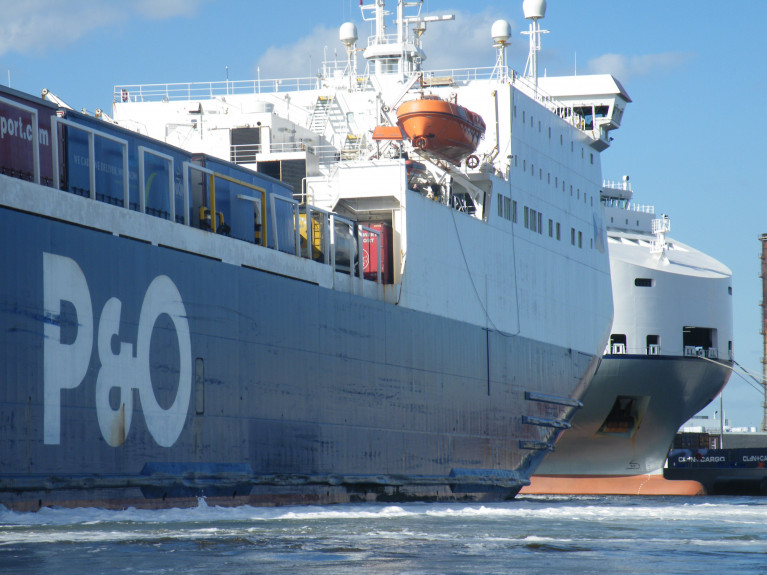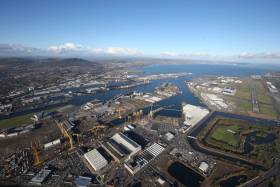Displaying items by tag: Insolvency
Bosses at P&O Ferries Set to Avoid Punishment after Sacking 800 Seafarers Without Notice
Ferry operator, P&O is confident that it can avoid a fine for last year's sacking without notice of nearly 800 seafarers.
Among those sacked across their UK routes network, were seafarers working on the Irish Sea routes of Dublin-Liverpool and Larne-Cairnryan (see photo above).
The annual report of P&O's Dubai based-owners, DP World, seen by the PA news agency, said its directors think an ongoing inquiry by the Insolvency Service will not result in any punishment.
Of the company's workforce, 786 were made redundant and without consultation on 17 March, 2022 (see, related story). This led to widespread criticism from UK and Irish politicians in addition from trade unions which saw member's protest at ports across both countries.
The mass sacking of seafarers saw them replaced by agency staff paid on wages less than the minimum wage.
A criminal investigation followed to inquire what happened, however this did not result in a prosecution.
Much from the Independent and the annual report.
As Afloat reported recently, in the UK, the National Union of Rail, Maritime and Transport (RMT) criticised a jobs cut proposal by P&O Ferries to shed a further 60 workers.
Criminal Probe P&O Ferries Face Over Sackings
Operator P&O Ferries faces a probe, reports BBC News, into the controversial no-notice sackings of nearly 800 members of staff.
The Insolvency Service has launched criminal and civil investigations into the circumstances around the redundancies.
In a letter, it said it would consider "prompt and appropriate action" if the law was broken.
Grant Shapps has also asked the service to consider disqualifying its boss from acting as a company director.
The transport secretary made the announcement as part of new pay plans for the ferry industry this week after P&O Ferries sacked 786 employees without notice and replaced with them with agency workers.
P&O Ferries said on Friday that all but one of the sacked employees had taken steps to accept the redundancy offer made by the company. One former P&O worker, John Lansdown, told the BBC he did not respond to the company's offer.
The company declined to comment on the Insolvency Service's investigation when approached by BBC News.
Business Secretary Kwasi Kwarteng tweeted that he and Mr Shapps would follow the new investigations into P&O Ferries closely as they develop.
Click here for much more.
Shipyard: Harland and Wolff Insolvency Request to Be Filed
A formal legal process to place Harland and Wolff into administration will be completed later today.
As the BBC News reports an insolvency request is expected to be filed at the High Court in Belfast.
On Monday, the company announced that accountancy firm BDO had been appointed administrators to the Belfast shipyard.
Having employed more than 30,000 at its peak, the move could now put 120 jobs at risk and spell the end of the iconic firm, best known for building the Titanic.
Unions representing workers have called for the shipyard to be renationalised, arguing it would be cheaper for the government to keep the shipyard open.
However, the government has said the crisis is "ultimately a commercial issue".
For more on this story in addition to the history of the famous shipyard click here.































































